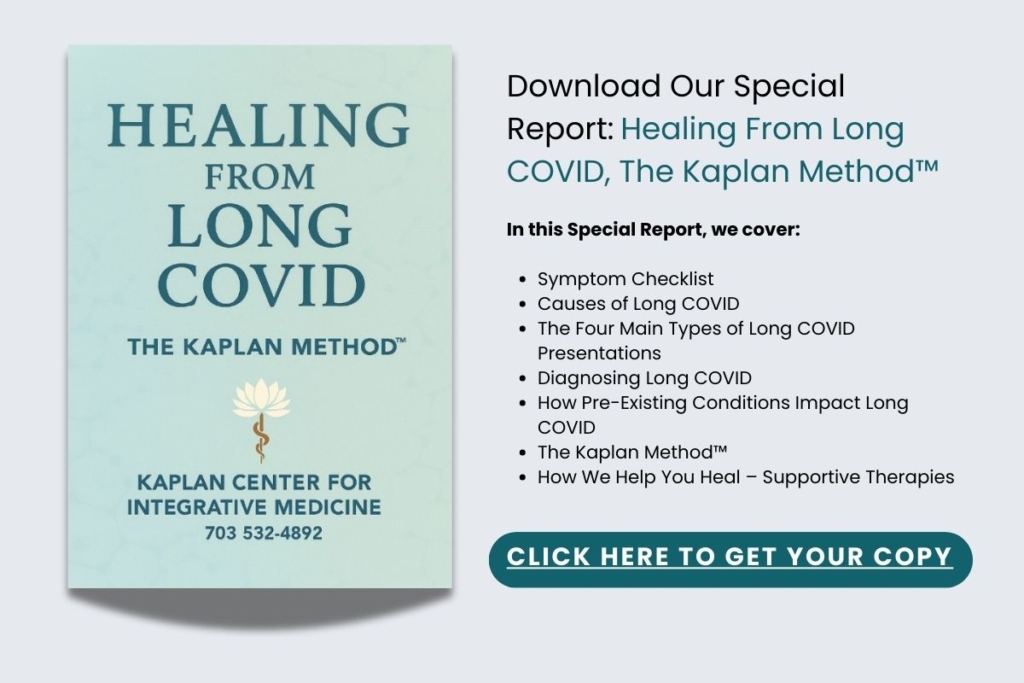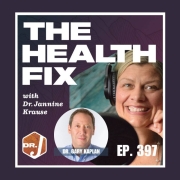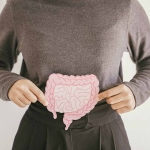Nutrition and Long COVID
Long-COVID or post-COVID syndrome is a wide range of new or persisting symptoms that COVID-19 sufferers continue to experience even after recovering from a COVID-19 infection. According to the Centers for Disease Control (CDC), long-COVID symptoms can last for weeks or even months.
It is estimated that somewhere between 10-30% of patients develop long-COVID syndrome. Unfortunately, no formal treatment for long-COVID exists. This has made managing long-COVID a difficult and sometimes lonely experience for many sufferers. With few guidelines on the treatment of long-COVID, it is important to consider some of the effects that our lifestyle choices may have on long-COVID symptoms. One such area is the dietary choices that we make.
Long-COVID with nutrition
There is some evidence to suggest that adoption of a plant-based diet leads to reduced intake of inflammatory mediators and higher consumption of phytonutrients that reduce the inflammation in the body and help facilitate health and healing. Addressing some aspects of our diet can help to tackle long-COVID associated inflammation.
Nutrients that support the immune system
Some recent studies have highlighted the benefits of a healthy plant-based diet in fighting underlying conditions linked to poor COVID-19 outcomes. A plant-based diet consists of the following components
- Minimally processed foods
- Variety of colorful vegetables and fruits
- Whole grains, and legumes
- Exclusion of all animal products (such as red meat, poultry, fish, and dairy)
- Nuts, seeds
- High fiber foods
Plant-based diets are abundant in fiber, antioxidants, and phytochemicals. They are also free of cholesterol and low in saturated fat and pro-inflammatory animal-derived molecules.
How nutrients can help
The specific benefits of some food items in a plant-based diet were pointed out in the study above. They include:
- Fiber – fiber may be associated with deeper, more restorative sleep and lowers bad cholesterol.
- Antioxidants and polyphenols – Naturally-occurring dietary polyphenols exhibit antidepressant activity. This is important for some COVID patients.
- Polyunsaturated fats – Eating more polyunsaturated fats and less saturated fats could potentially improve long-COVID-related sleep disorders
Evidence on nutrition and long-COVID
A recent population study that was carried out in 2021 highlights some potential benefits of following a plant-based diet. The study was conducted in six countries and found that adopting a plant-based dietary pattern was associated with 73% lower odds of moderate-to-severe COVID-19-like illness. In contrast, those individuals following “low carbohydrate, high protein diets” had substantially greater odds of moderate-to-severe COVID-19.
Although formal evidence of an association between diet and COVID-19 is still new, the evidence to date points to a potentially significant link between COVID-19 and our dietary patterns.
Management of long-COVID
At Kaplan Center, our goal is to treat long-COVID by taking a holistic, whole-body approach. That includes the use of new and emerging research and treatment that might produce better outcomes for patients. Dietary habits may be part of that approach and we may suggest this alongside other treatment options when dealing with long-COVID.
This article was published in March, 2022 and updated in March 2024.
Long-COVID Recovery Services
If you are experiencing symptoms beyond six weeks of being diagnosed with COVID-19, learn more about our Long-COVID Recovery Services to regain your strength, energy, and vitality. Click here for more information.
References
Long Covid Household Pulse Survey
Kim H, Rebholz CM, Hegde S, et al. Plant-based diets, pescatarian diets and COVID-19 severity: a population-based case–control study in six countries. BMJ Nutrition, Prevention & Health 2021;bmjnph-2021-000272. doi: 10.1136/bmjnph-2021-000272












Leave a Reply
Want to join the discussion?Feel free to contribute!